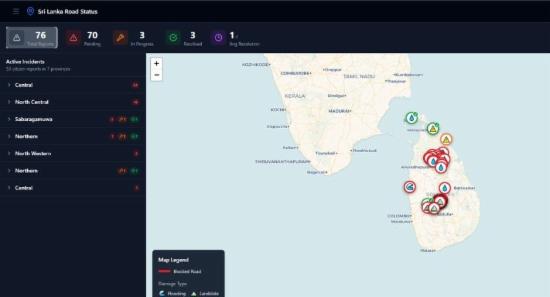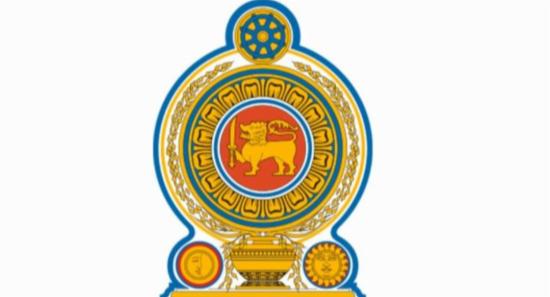.webp)
-724873.jpg)
Proposed broadcasting regulatory commission bill violates ICCPR - UN Report
COLOMBO (News 1st); The latest report from the UN Human Rights Office revealed that Sri Lanka's proposed broadcasting regulatory commission bill directly violates the International Covenant on Civil and Political Rights, or the ICCPR.
UN High Commissioner for Human Rights Volker Türk in the report on accountabily released on Wednesday (6) noted that the the draft Bill for the proposed broadcasting regulatory commission raises concerns about its potential to further unduly restrict freedom of expression and appears incompatible with article 19 (3) of the International Covenant on Civil and Political Rights.
The report added that draft Bill for the proposed broadcasting regulatory commission imposes restrictions on civil rights, similar to what is executed by the Prevention of Terrorism Act.
UN High Commissioner for Human Rights Volker Türk in the report noted that more than a year ago mass protests demanded better governance and an inclusive vision for Sri Lanka - in short, a renewal of the social contract, but the potential for a historic transformation that would address long-standing challenges is far from being realised.
The report added that fourteen years since the end of the war, tens of thousands of victims and their families continue to experience the pain and agony of seeking truth, justice, and remedy.
While the Government has proposed a new truth-seeking mechanism, the report stresses that the groundwork needs to be laid by genuine efforts to create the enabling environment for any transitional justice process to succeed.
Among other recommendations, the report calls on the authorities to accelerate investigations and prosecutions into emblematic cases of human rights violations, as well as the 2019 Easter Sunday bombings.
The High Commissioner has previously urged an independent investigation with international assistance to pursue further lines of inquiry into the full circumstances of the 2019 Easter Sunday attacks.
Following is the section on the broadcasting regulatory commission bill, mentioned in the report:
On 26 May, the Government unveiled plans to regulate broadcasting media. A draft Bill proposes the establishment of a broadcasting regulatory commission with the power to issue, renew or cancel yearly licences to all broadcasting channels, including media institutions already operating under existing laws. The proposed Broadcasting Regulatory Commission would comprise five Government-appointed officials,1 raising serious questions about its independence. The draft Bill states as its aim “to ensure that broadcasting services shall provide people true and accurate information”, a vague and ambiguous standard that could lead to arbitrary application.2 It also contains a prohibition on broadcasting “anything that may create a threat to the national security or economy or possibility to have conflict among race and religion". Similar formulations are used in problematic national legislation such as the International Covenant on Civil and Political Rights Act and the Prevention of Terrorism Act, which have been frequently applied in an arbitrary manner. Thus, the draft Bill raises concerns about its potential to further unduly restrict freedom of expression and appears incompatible with article 19(3) of the International Covenant on Civil and Political Rights.
Other Articles
Featured News





.png )

-819606_550x300.jpg)



-819577_550x300.jpg)




-819380_550x300.jpg)


-812087_550x300.jpg)
-810262_550x300.jpg)
















.gif)